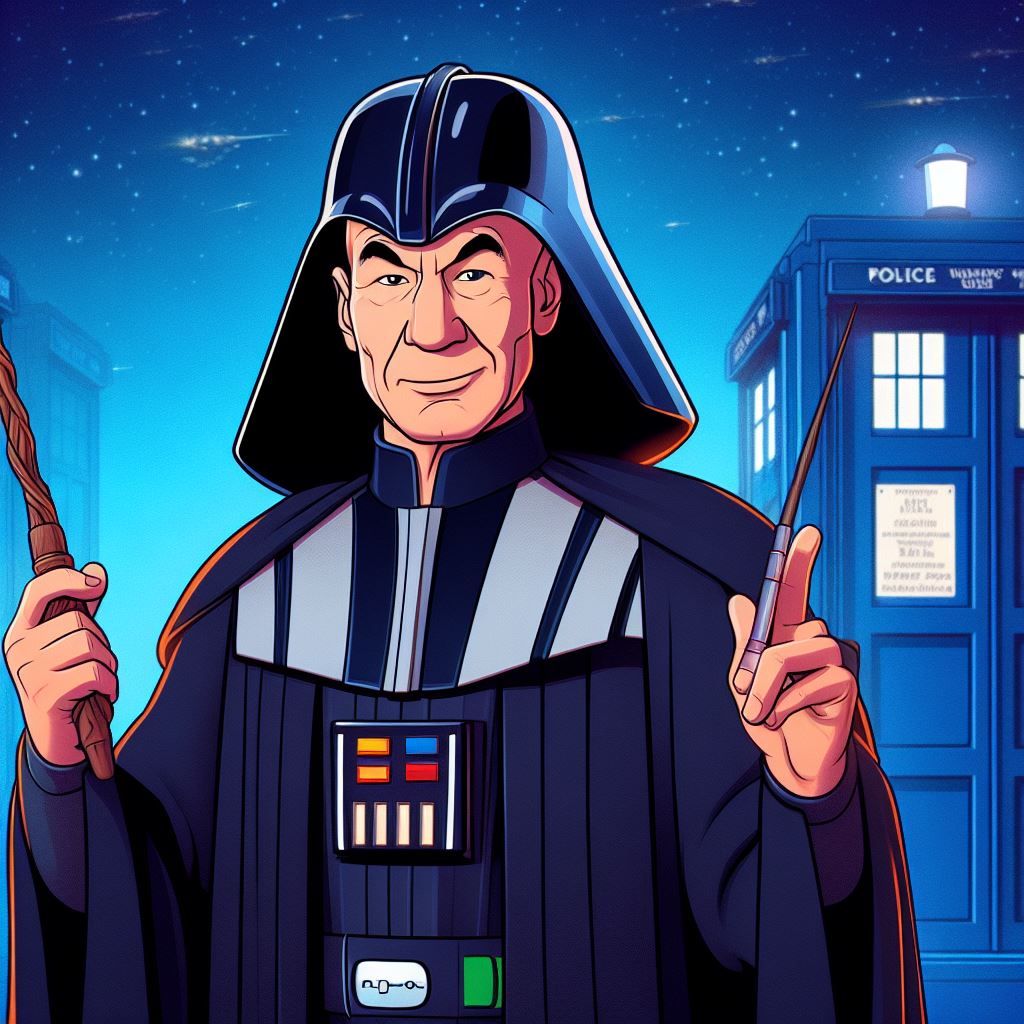Would you all explain to me how removing content we expect to have access to is a “cost savings” measure?
The following is from the Willow Wikipedia page, which led me to the linked URL:
The series was removed from Disney+ on May 26, 2023, amidst a Disney+ and Hulu content removal purge as part of a broader cost cutting initiative under Disney CEO Bob Iger.
I’ve been abroad for a month and earned some time off afterwards. One of my kids reminded me that we never finished Willow, so I said “let’s do it now!” The show wasn’t perfect for many reasons, but I wanted to finish it for nostalgia’s sake and my child legit found it interesting. Lo and behold, the series isn’t on Disney+ any more!
A quick search later, I see the above referenced quote linking to the article associated with this post… which only made things worse. The Mysterious Benedict Society was something my whole family could watch and enjoy without arguments! Turner and Hooch was dorky, but something my youngest loved and it was a super safe and easy pick for us bond over.
This post isn’t about whether the shows are good. And it isn’t about how nearly every show I like ends up cancelled. The point is that I paid for access, they were then quietly removed (for various platforms), and I have zero understanding as to how this saves these companies money.
Would someone explain?
P. S. Yes, I know this is old news. However, this is just how I am. I’m not up to date with anything in the entertainment world. I intentionally wait a few seasons for things because I loath when shows are cancelled after a season. (I’m looking at you, Firefly.) I’m the same way with books, often waiting to read a trilogy after its published because I don’t like the wait in between books. (Thanks, Rothfuss).
I just don’t take cancellation wells, especially when I was on top of everything including summer podcasts and such. (Now anything with the names Abrams, Lindelof, or Cuse makes my skin crawl.)
I know. I’m weird and stuff.
I’m not a specialist and I’m just guessing: licensing fees and streaming fees to the actors etc? Every view costs them a tiny bit of money. I guess over time it adds up. And from Disney’s pov those shows don’t bring in new subs or anything, so they only cost them money?
Please correct me if I’m wrong.
My guess is that any fees or residuals are based on a time to stream, not a number of views.
If residuals were only paid per view, you could have an underperforming show on and not really care that it underperforms. However, if you are paying per month, an underperforming show is not going to make the streamer money.
This makes more sense if true.
I figure it has to be along these lines, but I’m hoping for something concrete because it still doesn’t make a lot of sense to me.
Once published, I imagine a great many show and movies, especially older ones, bring in very limited money.
I see your screen name and automatically think of Star Trek Prodigy, another show all my kids agreed on. These are a rarity. And then CBS decides to just make it poof? (Although I think I heard enough backlash might mean it stays after all?)
I wish I could understand the specifics of this. I’m getting burnt out by these companies and understand why so many folks are just going back to pirating content.
Media executives in general can’t be trusted to act in anyone’s interest, even their own. Why did Game of Thrones get rushed out the door when the writers were approved for twice as many episodes and 3x as much budget as they used? Why did Witcher go from a universally beloved series to a dumpster fire based strictly on the ego of the directors? Why did Netflix drop all the shows anyone wanted to watch and is now full of first party garbage and literally nothing left that people want to see?
Some of the answers to these questions must make sense in some perspective, but I’ll be damned if I know what that is. Each of these seems like they had very simple solutions that were ignored.
😖
Maybe the shows you mention do not cost much to stream that’s why they keep them.
You said it faster and more succinctly than I did! Hah!
This thread isn’t touching on the biggest impact which is being able to write down or impair these assets that are taken off streaming or shows in production that are cancelled (for Warner’s an amount in excess of $3B) - the impaired asset value is then taken as a loss which reduces the company’s tax burden.
I won’t pretend to understand corporate accounting at all, but if a show is costing them more money than it’s supposedly bringing in, how does it actually have any value as an asset in the first place? Can they literally just deduct the cost of production?
I guess I’m trying to imagine an analogous physical example. If a business spends $10,000 on a widget machine, but after several years it deteriorates to the point of being functionally useless and worth only $100 for parts, if they then throw it out, can they write off the $100 it’s now valued at, or the $10,000 they originally paid? If it’s the $10,000, can that expense not be deducted at purchase, and they have to wait until the actual object is disposed of?
Well, I think there is a question too of the value that theses assets have when brought directly to streaming and the reason we’re seeing studios start to rethink this strategy and schedule more theatrical runs
However from what you described the scenario is similar and these situations also occur with more traditional assets, for instance a manufacturer who brings a product to market that significantly underperforms because of an unforeseen event, if the assets market value drops below what has been accounted for they write down that difference as a loss. This loss offsets other gains the company recognizes and therefore rescues their tax burden. Consumers are able to take advantage of this as well if they experience a loss in their investments (capital losses)
For businesses and consumers the ability to write down losses encourages additional investment, and the highly subjective nature of valuation allows companies like the studios to use creative strategies to offset other costs like Discovery’s acquisition of Warner Media
Yes, this is what I was thinking was the matter. And someone else in this thread posted at a guardian link saying something to the same effect. It’s still mind-boggling to me that to save money the answer is to remove everything completely. It feels like these big production companies are failing people and their use of the tax system is furthering that so they can save money. It just seems strange that they have to axe a show from existence to be able to prove it as a loss to the government.
Yeah it does seem counterproductive, companies in other industries do this all the time it just goes unnoticed - this system does not work in the consumer’s favor
Your best bet is to vote with your wallet. Can’t get Willow on Disney+? Then, Disney+ doesn’t get your money. I’ve been buying more physical media and downloading again like I’ve gone back in time 20 years.
Not physical media again. Haha. We got rid of all our DVDs to trim down on all the…stuff. No more stuffffff.
But it’s that or someone hosts it, which costs money and circle around again…
Bring back the giant disc cases! 100 discs in a single soft-sided case takes up less room than a shelf of DVDs. Now all your friends can flip through to decide what they want, just like in college! /old
Please no. Even after ripping all my music, I still have a one foot thick ream of CDs that I wish I could part with but my partner would murder me over.
A single consumer hard drive can hold several thousand DVDs. With newer codecs you can get much much better quality at smaller file sizes, too.
I consider this by far the best experience in terms of quality and performance. Unfortunately, the only way to live this dream is to pirate everything, or spend a lot of time ripping your own discs (which might not be legal anyway thanks to bullshit DRM cracking laws).
And this is so true. Both the ripping your own content and then the DRM implications of it all. And all so frustrating.
And here I just want to buy things. And keep them. In my preferred format. Forever. The end.
Or everyone hosts it and shares the costs, aka piracy.
FWIW getting one of those disc suitcases can hold hundreds of dvds without taking up much space at all. If you rip backups, you can store it somewhere out of the way without too much clutter. Plus it’s a very stable backup for the digital files.
4TB USB Drive. You’re welcome.
4tb? Is this storage for ants?
30TB unraid or bust!
Pshhh, those are rookie numbers ;P
So it’s a tax thing.
The specifics of the tax and accounting issues at play here are beyond me, but it seems to be related to how big the value of the stuff you offer is versus how much of the cost you can write off as a loss.
The Guardian talks about it today and summarizes the whole process as “In May, Disney+ announced a content removal plan designed to cut US$1.5bn worth of content, meaning it substantially reduces the company’s value, giving it a lot less tax to pay.”
It’s all fake, dumb monopoly money stuff and it sucks. Somebody track down an actual corporate accountant who can explain the process better than me, though. It’s probably an interesting bit of detail to learn about.
This is what I had heard at some point. It’s a tax thing. Even though there are no details, it makes more sense to me now. Reduced value == less taxes. Would love to hear the guts if this… but also at the same time pulling out hair. So much blood, sweat, and tears going into producing something only having it then wiped from existence. smh.
And I hadn’t realized that Westworld was axed too. For a show that made such a huge hubbub and then to remove it entirely?! Ugh
It’s because they take the value of the shows they remove and mark them down as a straight loss, it’s a ridiculous loophole. They are literally saying, “I have this thing that’s so valuable, but I ‘accidentally’ threw it away, it’s worthless now, I need to mark this down as a loss.” They are destroying their own products for tax purposes.
The Discovery channel boss started this trend when he cancelled that Batwoman movie, and now other streaming corps are following suit. Hopefully the law will catch up to prevent this kind of trickery, but for now it seems they are doing everything they can to reduce costs because they rushed to steal Netflix’s lunch without a solid business plan.
it’s a ridiculous loophole. They are literally saying, “I have this thing that’s so valuable, but I ‘accidentally’ threw it away, it’s worthless now, I need to mark this down as a loss.” They are destroying their own products for tax purposes.
This. ☝
Business Accounting is such make-believe bullshit.
It’s so they don’t have to pay royalties to the people who made the shows.
Many companies have to pay a publisher rights for their show, which may or may not go onto paying other actors and companies and other stuff. This is much lower if you own the show. Hence why Netflix will have their own shows that don’t disappear. Or Disney plus will keep Disney owned shows.
But some examples are:
- you are an avid watcher, you’ve seen these shows, so to retain you, companies will cycle out long standing shows for others (use the money for new stuff)
- Company is paying a lot for 1 show when they could diverse (or the other way) to get a more popular show to drive in traffic or cheaper shows that drive more traffic.
- company would rather drop the money going to the publisher and spend it for their own new show that they pay less ongoing cost for
- if a company has a hard year, they may just not pay publishers for as many shows so their books look better and they make some money to invest in innovation/shows
- some CEO’s look at companies differently. They join a company, they cut costs saving 10mil by not paying publishers. They then pocket 5mil as a ceo saying they saved so much money. Then they move onto their next company. And the company pays for the show to come back again.
That last point is especially true for so much business these days. Ugh.
You missed the Tax write-off. Through some creative accounting, a company can remove something from streaming, claim the service is now less valuable, and save money on their taxes.
For streaming, much like every other distribution, rights aren’t free. I don’t know the exact details, but I suppose (and if I’m wrong, please correct me) companies have to pay a percentage of their income, or fixed price, every month, to keep the show on their catalogue.
There is also the idea shows with low viewership are “costly” because you’re hosting something that isn’t being used often. Storage isn’t free, neither is serving bandwidth, especially for 1080p and greater qualities. If only 5 of 100 customers watch a certain show, it means that the show only “brought in” 5% of the revenue. It doesn’t matter that this math “is wrong” or “doesn’t make sense”, that’s the simplified version of corporate thought: if the cost is greater than the profit, ditch it.
Afiak, storage is actually the cheap part whereas bandwidth is the where the cost resides. If a show isn’t watched much, I’m still not certain why it would cost much. And when a company owns the rights, I’m even more confused as to how licensing can be costly. There obviously has to be way more involved with licensing that I am not aware of. And royalties are only paid when content is consumed, right?
Storage isn’t cheap, but storage and transmission are not free. I would have dismissed this as a significant cost, too, except that a frind of mine is part of IT at major US university (~35k undergrads) and a couple of years ago they were actually negotiating with Netflix to potentially colocoate a server on campus to reduce the total external data rates. Standing up a server and maintaining it may be small cost compared to the revenue of Netflix, but there are easily 100 campuses as large is this one in the US, and doubtless many other high density areas. Caching even a couple hundred TB of additional content spread over n data centers will eventually start adding up.
My guess is still that it’s a fixed-fee cost for licensing (say, $2M/yr plus $0.0005 per streamed minute) that is pushing long-tail series off the platform. If profitability is at $0.001 per minute and the hypothetical above streams less than a billion minutes a year, the net cost pops over $0.001 and it gets dropped (or whatever the math is).
Depends, sometimes royalty costs are per view and others are a set amount per period of time. If it is the latter then the more views the more it is worth, and lower view numbers are worse because the cost is split between the views. Doubly worse if that show was supposed to attract new viewers, and none of them watch that content.
IP is a clusterfuck of rights and licenses. The owners have generally made sure to wring the last cent out of this stuff, making it fairly complicated. So things can randomly end up removed from re-releases or over the air, due to time-limited licenses. E.g. Scrubs had a huge part of its iconic soundtrack nuked from streaming versions.
Indeed.
Btw, was Scrubs removed or the music replaced? I don’t even know where to find it now.
Scrubs itself should still be around somewhere, but a lot of works are only available on one platform now. I have no idea where, but that might be possible to search for. A lot of music will probably have been replaced if you’re streaming.
This used to be the only reason, however in the last couple years we’re starting to see streaming services remove their original programming (owned and produced by themselves/their parent or affiliate studios). Seemingly just so they don’t have to pay more in royalties.
It’s not about saving money on the backend, it’s about not bombarding people with terrible shows like Netflix does. They’re trying to trim the fat so that all you see are quote unquote bangers. For instance, the Willow show was hot garbage.
Hot garbage they spent a whole lot of money on that could still be served without ever showing on the main title screens. They clearly had to have made a determination that the show would cost them more to keep it available, even though it doesn’t entirely make sense to me how that all works.
🤖 I’m a bot that provides automatic summaries for articles:
Click here to see the summary
If there’s a show on Disney Plus or Hulu that you’ve been meaning to watch then you might want to do so quickly before it is pulled from the platforms for good.
According to a report by Deadline, Disney is about to remove dozens of series (and a few films) from both streaming services, including Willow, Y: The Last Man, and Turner & Hooch, as part of the entertainment giant’s broader cost-cutting measures.
Disney’s decision to purge content follows similar cost-cutting moves by HBO Max and Showtime to avoid paying out for under-performing library titles.
Willow, the revival of Ron Howard’s 1988 fantasy film of the same name, is a surprise inclusion among the list of shows being removed considering it had only started airing in November.
The company laid off 7,000 employees and announced plans to restructure key parts of the business earlier this year.
Disney has also been hesitant to buy out Comcast’s 33 percent stake in Hulu as it intended in 2019, and recently announced the closure of its absurdly expensive Star Wars-themed hotel experience.
Saved 62% of original text.
deleted by creator
I’m not in that industry, but I am in tech, so this is mostly conjecture based on other, somewhat similar, experience.
My guess is it comes down to storage space, bandwidth costs, and licensing fees. Probably the latter more than anything.
When they own the IP, they probably don’t have much in licensing but there’s probably all sorts of agreements with other studios, royalties to consider, etc… not carrying these shows could free that up.
Bandwidth can be expensive. I’d imagine that Disney is hosting this on their own hardware to help mitigate costs, but having seen some AWS bills in the past for a moderately trafficked SaaS platform, it adds up. Extrapolate that to millions of users.
Storage, likewise, can also be expensive. Especially as the quality of these shows and movies increases. A 1 hour, 4k video can be multiple GB of storage so having whole seasons of shows can add up.
Then of course there’s the marketing side of this. I can imagine they have several, if not teams of several, data analysts who are able to pinpoint how much money a show/movie is bringing in. Then it’s purely a cost comparison. If it’s costing more than what they are bringing in, it’s a no brainer. If it’s similar or less, then there could be even further factors I’ve not considered.
Anyway, that’s my thoughts. It would be cool to know more from an industry perspective, but that’s an industry I likely won’t ever join.
I am no expert, I only heard a podcast on the subject, but this is my understanding of it: People subscribe for new shows, and old shows are less profitable for the companies. Old shows require them to pay residual fees to the actors and creators involved, so a show that’s been out for a while has a fixed cost associated with keeping it on the platform, but a vague, less easily measured ‘profitability’ based on how many subscribers stay on the platform because of it’s large back library. So, by cutting a few of the shows that less people are viewing, they save the fixed costs, and only lose out on the handful of customers who might quit because of an old, beloved show. It’s stupid, because it’s short sighted. They get a small reduction in overhead costs at the expense of the overall value of the product, and they irritate their customer base.
I wish I remember which podcast it was, they explained it so much better. I think it was a Planet Money, maybe?
It’s the same way there’s new customer promos for cell phones and such. You’re effectively punishing loyal customers, but you need to drive growth quarter over quarter. The money you save by screwing over existing customers can be spent on a flashy new show that might bring in new subscribers in the short term.
But the thing is… the shows in my original post aren’t “old.” I think Willow only got a six month run. This is so bewildering to me, especially with all the advertising that went into it.
Let’s take three shows.
Show 1 is wholly owned by the service and their music and other licensing costs them 100 dollars a month no matter how many people watch it. Minimal residuals and the only real cost is the streaming so they will never drop it unless another device wants to pay them more than it adds value to their service.
Show two is wholly owned by the device, but their music and licensing costs them 10,000 per month no matter how many people watch it. If not enough people watch it, or just having it doesn’t bring them brand recognition, they might license it to someone else.
Show 3 was funded by the service, but is owned by a separate distributor. To users, it appears to be like shows 1 and 2, but on the back end there might be some licensing issues or other costs that can rise over time that make it less lucrative to the service. So it might be dropped due to costs without anyone picking it up.
A big issues with streaming on thr user’s end is that the arrangements for a show are rarely clear. Like how Netflix branded content is distributed, not developed directly, by Netflix. HBO us similar, with some content licensed and others in house, and you can’t tell the two without knowledge from outside the service.
So when a service drops something that you thought was theirs, it was probably licensed and the licensing was dropped during renegotiation. But in the case of HBO/max the buyout and trashing of content is just a CEO making short term destructive changed to drop well made content in favor of more trash reality TV because that makes more money relative to cost and he doesn’t care about prestige branding
But imagine Willow to be entirely Disney. I imagine the tax benefit of cutting it is the best answer to my question, but hell… gah
















